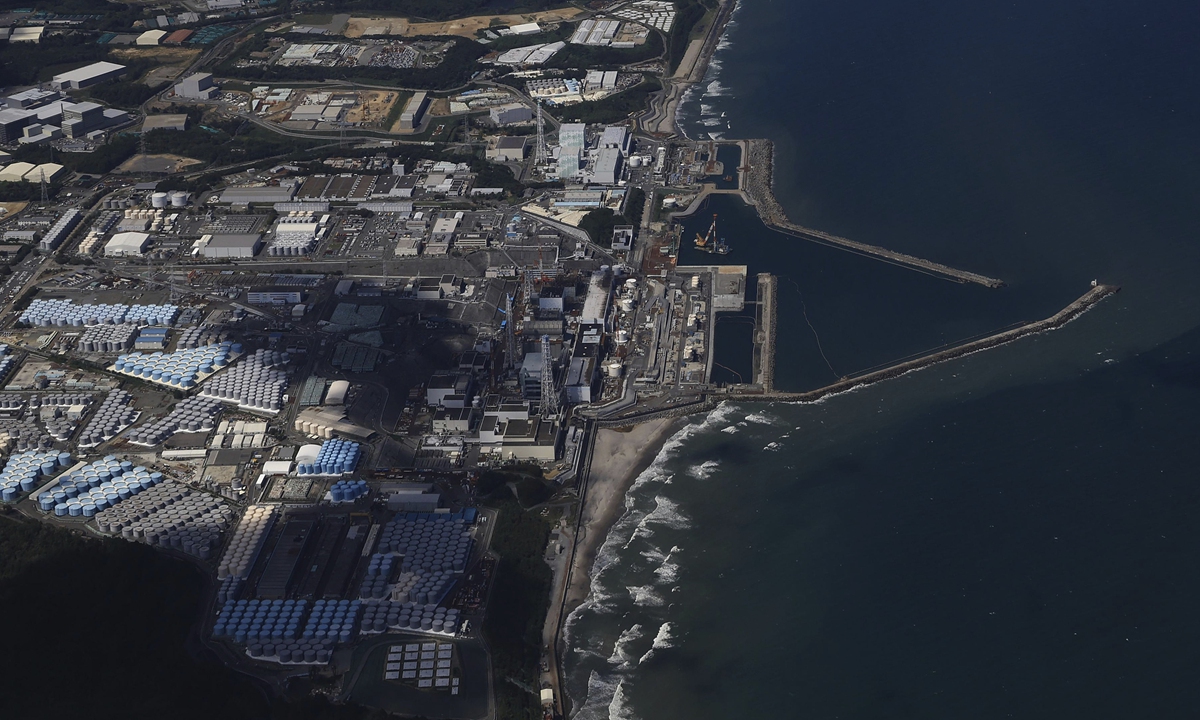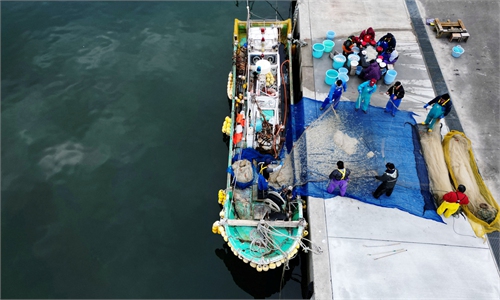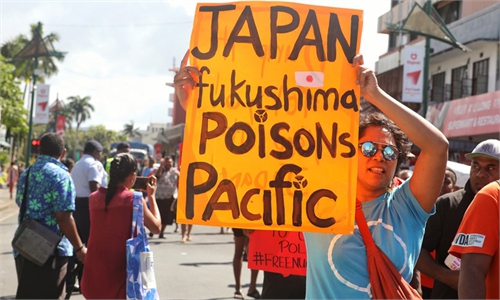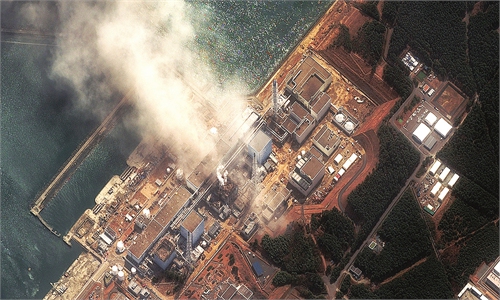
Japan starts dumping nuclear-contaminated wastewater into the ocean. Photo:VCG
China's suspension of Japanese aquatic products import is legitimate and in line with international practice, and Japan's threat to take the ban to the WTO is another scheme played by Tokyo to shift blame in its attempt to cover up the crime of dumping nuclear contaminated wastewater to the sea that puts global environment and people's health at risk, observers said.
In response, Chinese Foreign Ministry said on Wednesday that it is entirely legitimate, reasonable and necessary for the Chinese authority to take emergency measures against imports of aquatic products from in Japan in accordance with Chinese laws and provisions of WTO agreement.
China has repeatedly stated its solemn position on the issue of Japan's discharge of nuclear contaminated water into the sea. The international community has generally criticized the Japanese government for its selfish and extremely irresponsible act, and has taken relevant preventive measures, spokesperson for the Foreign Ministry told a press conference.
The comments came after Japanese Foreign Minister Yoshimasa Hayashi said Japan would take "necessary action (on China's aquatic products ban) under various routes including the WTO framework," Reuters reported. Japanese Economic Security Minister Sanae Takaichi said separately that filing a WTO complaint might become an option if "diplomatic routes" with China are ineffective, the report said.
Chen Zilei, director of the Research Center for Japanese Economics at the Shanghai University of International Business and Economics, told the Global Times on Tuesday that Japan lacks sufficient explanation for the nuclear contaminated wastewater discharge both domestically and internationally, and it would "take a lot time, effort and money" for Japan to go through the WTO process.
"China has expressed its concerns and opposition many times, and the imposition of the import ban is clear and legitimate," as the discharge is harmful for the ocean, the environment and human health, said Chen.
The Japanese government's move to dump the wastewater into the ocean has met broad opposition. China's Foreign Ministry said that the country has lodged solemn representations with the Japanese side through diplomatic channels, demanding Japan stop the release of nuclear-contaminated water.
China's Foreign Ministry spokesperson Wang Wenbin said on Tuesday that "it is the plain fact" that the overwhelming majority of countries have criticized and made clear their opposition to the discharge.
In response to Japan's extremely selfish and highly irresponsible wrong act, Wang said that China and other stakeholders in the world have the right and responsibility to take legitimate, reasonable and necessary preventive measures to safeguard marine environment, food safety and people's health. "What Japan should do is to immediately correct its wrongdoing and stop discharging the nuclear-contaminated water into the sea," Wang said.
China's General Administration of Customs last week imposed the ban on imports of aquatic products originating from Japan.
The move aims to comprehensively prevent the risk of radioactive contamination caused by the dumping of nuclear-contaminated wastewater from Fukushima to affect food safety, protect the health of Chinese consumers, and ensure the safety of imported food, the spokesperson said.
Global Times



